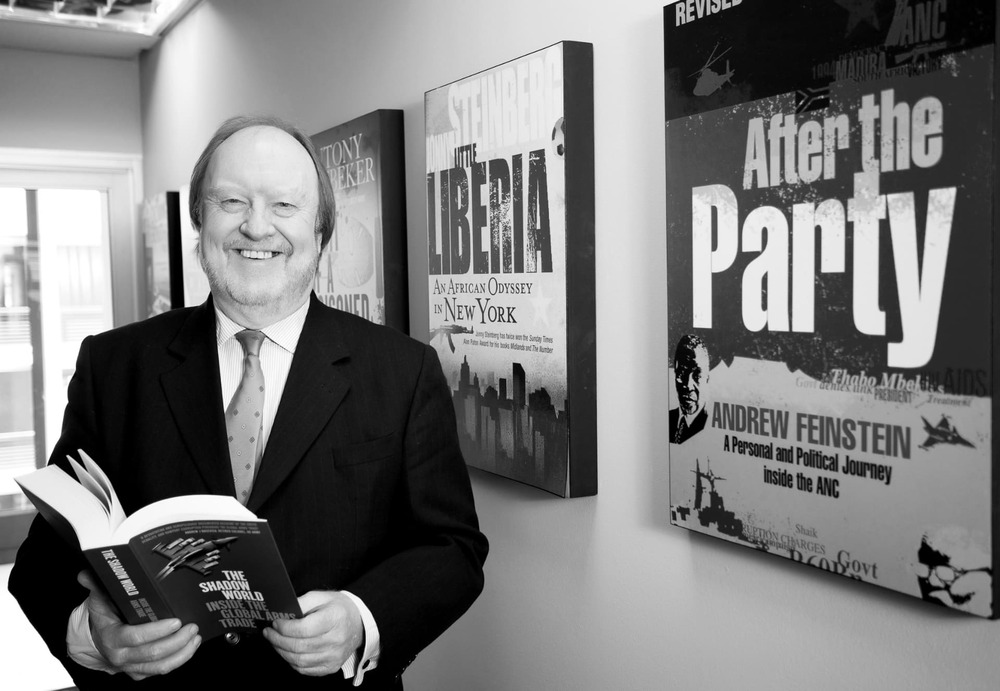You are viewing your 1 free article this month. Login to read more articles.
Obituary: Jonathan Ball
Obituary: Jonathan Ball
Born 22nd May 1951. Died 3rd April 2021
Jonathan Ball, who died aged 69 on 3rd April, created the finest and bravest publishing house in South Africa. On the insistence of his older brother, he called the house after himself and Jonathan Ball Publishers is known to most British publishers with a global perspective because it is the best distributor of British and US publishers in Southern Africa. Publishers it sells in South Africa include HarperCollins, Hachette, Bloomsbury, Faber & Faber, Nosy Crow, Simon & Schuster, Bonnier and Profile Books. Jonathan said part of his life’s work had been “to be South Africa’s leading agent for British and American publishers and in this way maintain and foster links with the English-speaking world”. He was delighted in representing the lion’s share of British publishing in South Africa and did it with pleasure, pride and enthusiasm.
Like all entrepreneurial houses, it started small when Jonathan Ball, having borrowed money from his brother, founded the company in 1976. That was at the height of apartheid and the year of the Soweto uprising. Jonathan said his ambition was, “To publish books that enlighten and entertain. Books of a liberal sanity that pander to neither left nor right, nor to clever contemporary fashions in thinking.” It’s still the company motto.
One of his first books was an exposé of the Broederbond, a secret masonic-like society of apartheid backers and leaders. When he tried to get the book printed in South Africa, anyone within reach refused; he could only get the book printed by finding a bankrupt works that had closed, and working on the binding line himself, day and night. It went on to be a huge bestseller and the Broederbond was never as powerful again. That exposé and many others characterised his brave approach to publishing. Jonathan himself said: “I have been bollocked by a Prime Minister in his office in Tuynhuys. Summoned to appear before the Speaker of the House of another Prime Minister. Had pre-dawn raids, a time at which I am never at my best, by the security police. Been threatened and bullied by the office of a president. We have been sued by the corrupt, pressurised, and threatened.” Jonathan was very proud to have published every opposition leader who wrote a book.
Publishing is much easier in some countries than others: this is what holding truth to power really means. The best publishers, especially in challenging parts of the world, are central to the culture and literature of the country. Jonathan Ball was even more than that. The bookshop and literary scene in South Africa is almost unimaginable without him. What people would have to read would be so, so impoverished.
In fine company
It is not enough to be courageous. You also have to be smart, and Jonathan Ball was a brilliant businessman and savvy negotiator. He was also huge fun, a large man who celebrated the traditional publishing lunch—and, on trips to London, dinner the same evening too. He was excellent company at Frankfurt and in London, and a famously hospitable host to visiting publishers and authors in South Africa. He could be bombastic, but he had a marvellous sense of humour and was held in the highest respect and affection by all the international authors and publishers who worked with him.
Like all independents, he had his ups and downs. At one point there was a commercial relationship with Hodder & Stoughton (then a family-owned business) that went sour; there was another with HarperCollins, and there were various vicissitudes along the way. But whatever the vagaries of the market—always an incredible challenge in South Africa—Jonathan never lost his confidence in the importance of books to change lives and change politics for the better. After his retirement, and with his wholehearted support, Jonathan Ball Publishers bought Icon Books. Icon c.e.o. Philip Cotterell describes it as the only UK publisher with an African chair [Eugene Ashton].
In a valedictory speech in London on his retirement, Jonathan said: “In South Africa we have seen publishing as being about building bridges, expanding knowledge and intellectual horizons, enlightening and, most importantly, entertaining... and making a profit while doing so. We have believed that publishers should take risk on the cultural front while seeking reward on the commercial front. We have also believed that it is about breaking down barricades and barriers, introducing the reading public to other lives, lived in our times, other times, other places and other circumstances. In South Africa we have a duty to illuminate the lives of the poor and dispossessed.”
This is a model ambition for any publisher, now more than ever.
Andrew Franklin is the founder and m.d. of Profile Books. Eugene Ashton is the c.e.o. of Jonathan Ball Publishers.










